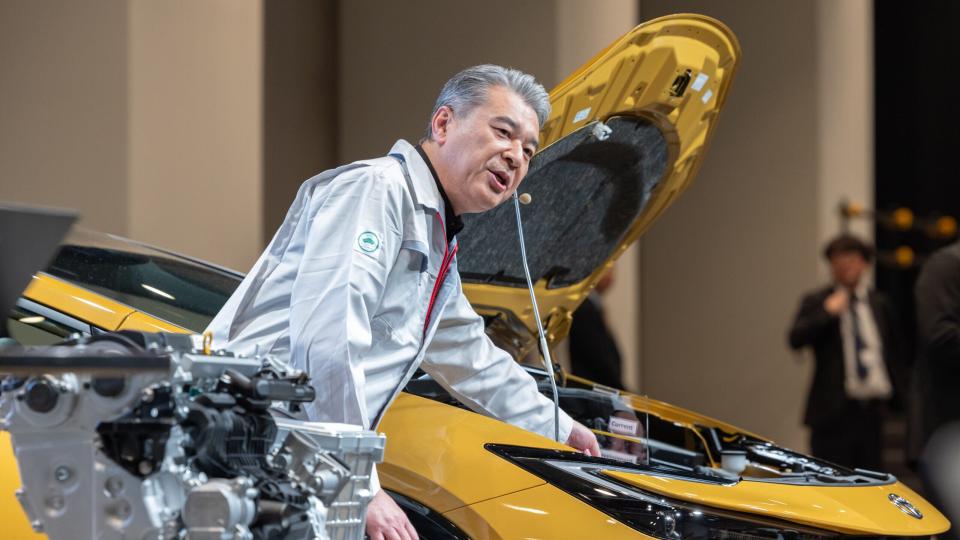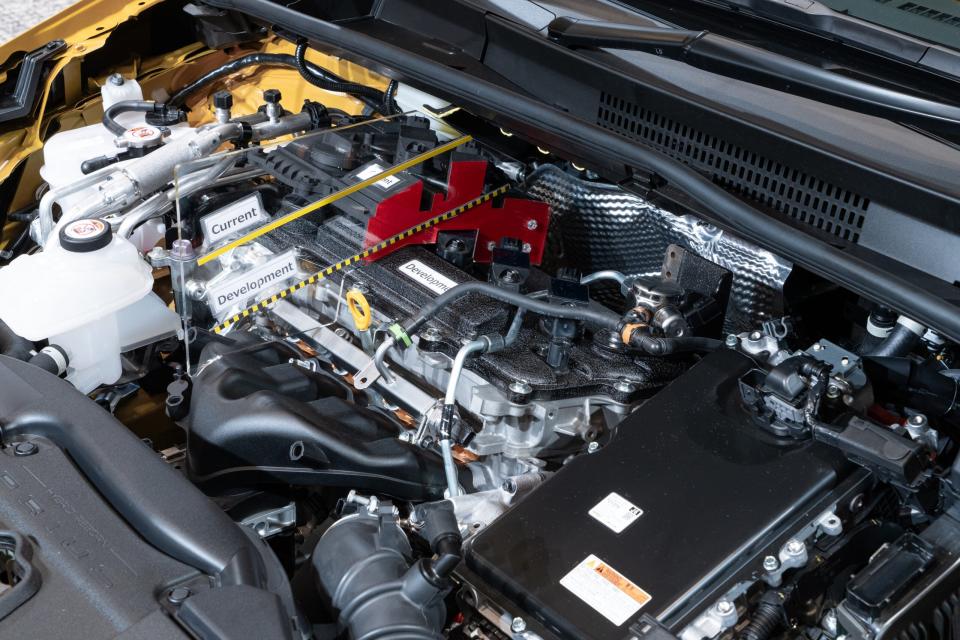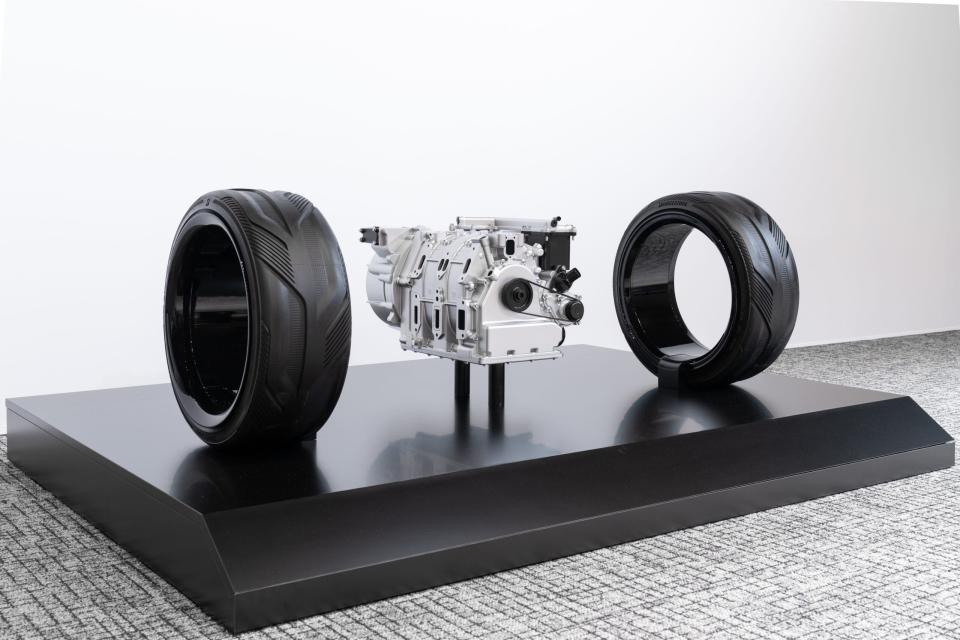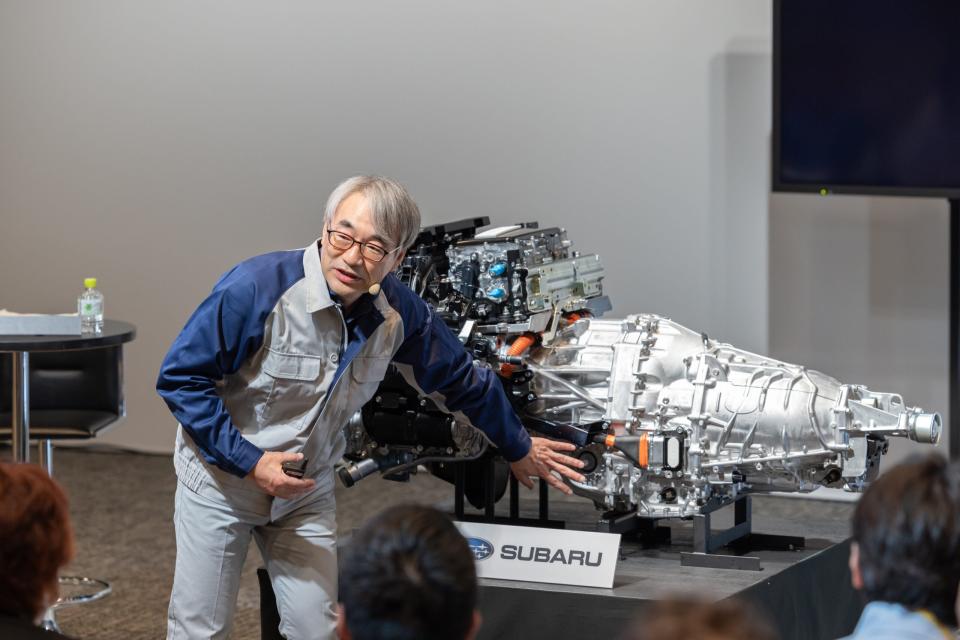Toyota, Mazda, and Subaru Still Believe in an Eco-Friendly Combustion Engine

Toyota, Mazda and Subaru are not giving up on internal combustion yet. The Japanese auto giants are forging ahead with the development of new internal combustion engines, which the automakers say are actually necessary to lower emissions overall while still giving customers the choice to keep using familiar technology.
Toyota is working on smaller and cleaner inline-four cylinder engines that are nonetheless more powerful than its current engines. Mazda is developing a rotary EV concept. And Subaru is making a next-generation hybrid system based on its boxer engine.
These new engines are being developed as part of a joint effort by Japanese OEMs as opposed to automakers in the West, which up until recently planned to abandon development of gas-burning engines to focus on fully electric cars. A global slow down in the growth of EV sales has prompted the need for a renewed focus on ICE vehicles, according to Kyodo News, which reportedly has to do with early adopters having acquired EVs while the general public remains hesitant to make the switch. While that may be true, Kyodo News mentions in passing that Japanese automakers and Nippon's gas-centric supply chain has been struggling with the auto industry's shift to EVs.

That is, Japan has much to lose by abandoning internal combustion altogether. So Toyota, Mazda, and Subaru are working on ways to make ICEs compatible with the goal of lowering emissions worldwide. The three carmakers are now proposing solutions to the seemingly incommensurate goal of new ICEs and lower CO2 emissions by making more efficient engines that run on so-called carbon-neutral fuels. The term CN fuels is a catch-all for synthetic fuels made from hydrogen and carbon dioxide, as well as biofuels derived from biomass such as plants, per Toyota.
Toyota is working on new inline-four cylinder engines that could power upcoming versions of popular models like the Toyota Prius. The automaker showcased new 1.5- and 2.0-liter inline-four engines that are smaller and more power dense than engines currently in use. Toyota says the packaging of these new engines will enable it to make more aerodynamic (and efficient) vehicle designs by lowering the hood of its cars, and that the new engines' smaller size will allow for better integration with electric motors.





Toyota insists the real enemy has always been carbon, not internal combustion, per se. While the automaker says that it's working on a number of different solutions including standard hybrids, plug-in hybrids, EVs, and FCEVs, it's clear that Toyota sees plug-ins as the most viable solution to the problem of emissions. The new engines that the company is working on will likely remain gas-burning mills in the short term, but Toyota is teaming up with Idemitsu Kosan, ENEOS, and Mitsubishi Heavy Industries to make CN fuels a reality in the not-so-distant future. The idea is that once these fuels are widely available, even ICEs will be environmentally friendly.
Whether that's indeed possible is yet to be seen, but Toyota sees this as a continuation of its efforts to reduce carbon emissions dating back to the 1990s with the original Prius and the late 2000s when it introduced flex-fuel vehicles in Brazil, which run on a mix of biofuel and gasoline, as the Toyota Times reports.
Toyota's competitors and "co-creators" of eco-friendly ICEs, Mazda and Subaru, are fully behind Toyota's multi-pathway approach. They're also showing off upcoming internal combustion designs, with Mazda saying that its new rotary engines are ideal partners for electric motors due to their small size and weight.


Mazda also claims that rotary engines were early pioneers of hydrogen power and are "omnivorous" when it comes to fuel, so they will readily take to Toyota's carbon-neutral fuels when (or if) they ever come to market. Subaru is likewise working on a new hybrid system that will run on CN fuels but will still rely on its tried and true boxer engine and symmetrical AWD to give Subaru fans the formula they've come to expect.
Toyota and its fellow OEMs credit the development of these new engines to their domestic racing efforts. Some of these engines—or, at least, the technology that underpins them—have been minted in the crucible of motorsport in Japan as Toyota, Mazda, and Subaru continue to compete against each other with cars that run on liquid hydrogen and other CN fuels. One example is the Corolla that runs on hydrogen and, yet, sounds just as rowdy as its siblings that run on gasoline.
Japan's auto giants are sending a clear message: ICE will live on. The three automakers—led by Toyota president Koji Sato, Mazda CEO Masahiro Moro, and Subaru president Atsushi Osaki—seem to genuinely believe that an eco-friendly internal combustion engine is not an oxymoron but an attainable goal. Given how much of Japan's industrialization success has to do with the combustion engine and auto industry in general, it's easy to see why these OEMs are keen on immortalizing ICE.

Got a tip? Email us at tips@thedrive.com

 Yahoo Autos
Yahoo Autos 